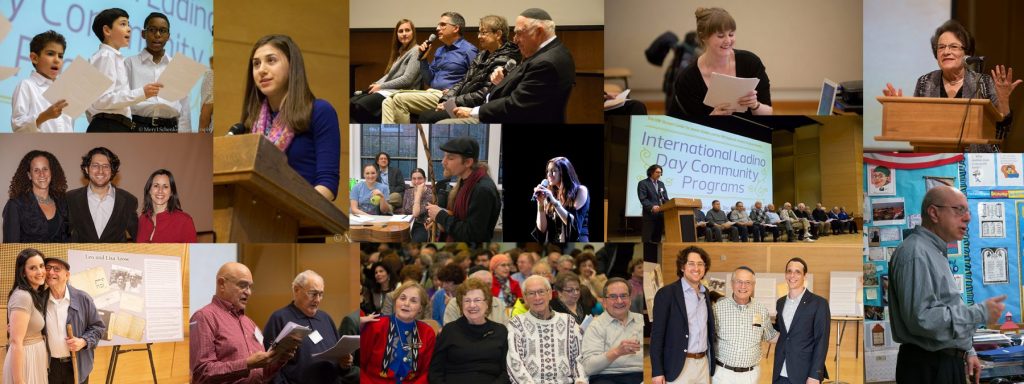
Keridos amigos,
It is hard to believe that we have just completed ten years of Sephardic Studies public programs, digital projects, courses, and more at the University of Washington. We can now confidently say that UW Sephardic Studies is a premiere program in the field both in the U.S. and across the globe. As we celebrate our tenth anniversary—and as our home unit, the Stroum Center for Jewish Studies, approaches its fiftieth anniversary—we take pride in our accomplishments, look forward to the next decade of growth, and express gratitude to all those supporters who have made our endeavors both possible and successful.
The Sephardic Studies Program emerged in response to the needs, interests, and generosity of members of the local Sephardic community who wanted to see their history, culture, and language better represented in the halls of academia, as one of our key supporters explains. As calls for “inclusion” have been amplified in recent years, demand for the expertise and contributions of the Sephardic Studies Program has only increased—on the part of students, scholars, museums, community organizations, schools, local and federal government agencies, filmmakers, podcasters, journalists, and the broader public.
Initially just me working with a grassroots group of community collaborators, Sephardic Studies now has a full-time staff member, our new assistant director, Jennifer McCullum; two additional core faculty: professor Ana Gómez-Bravo (Spanish and Portuguese), who offers courses on Jewish culture in Spain until 1492 and created the engaging digital project, “The Converso Cookbook,” and our new colleague, professor Canan Bolel (Middle Eastern Languages and Civilizations), who offers courses in Ladino language and literature and whose timely research focuses, in part, on Ottoman Jews and epidemics; a dynamic cohort of a dozen graduate students; and ten thousand followers across our social media platforms. Our undergraduates have been recognized for their stellar contributions in Sephardic Studies with the prestigious UW Dean’s Medal and UW President’s Medal.
Our flagship project involves a collaboration to collect, digitize, and disseminate the vast literary and historical legacies of Ladino-speaking Jews. Most of the books and documents that constitute our ever-growing collection have been contributed by members of the Seattle Sephardic community, and increasingly, people of Sephardic heritage across the country and abroad. After a decade of diligent work involving our staff (especially former team members Ty Alhadeff and Makena Mezistrano), faculty, graduate and undergraduate students, collaborators at UW Libraries, a professional digitization company, a digital museum design firm, and the generosity of our supporters, we are close to launching a new digital portal that will provide unprecedented online access to the more than four hundred original Ladino books—more than the Library of Congress and Harvard University have combined—and hundreds of family letters, postcards, manuscripts, and audio recordings. In the process, we have developed new ways to use technology to support the humanities, through library sciences, text encoding tools, visualization tools and artificial intelligence. Our collection has even been the inspiration for an entire book! Scholars have visited us from as far as Madrid, Jerusalem and Tokyo just to see this collection for themselves, and soon they will be able to access the material from an internet connection anywhere in the world!
The portal, we hope, will have the power to change the field of Sephardic studies by providing ready access to a vast range of primary sources, many of which are incredibly rare, some of which are one of a kind. In the future, we hope to collaborate with other institutions across the world with significant Ladino holdings to provide access to as much of the Ladino historical and literary legacy as possible.
Over the past decade, the Sephardic Studies Program, with the support of the Stroum Center for Jewish Studies, has also hosted around fifty guest scholars, musicians, and cultural activists from around the world who have shared their research, art and insights with our community – both in person and online. One of the distinctive features of our public programs are their interdisciplinary and collaborative approaches: we can count on a wide range of partners that bridge the divides between humanities, social sciences, and the arts as well as between town and gown, including the departments of History, Spanish and Portuguese, Linguistics and Music, plus local and national institutions in the Sephardic, broader Jewish, and Turkish communities.
Our annual marquee Ladino Day program, recognized by the governor of Washington State and now made possible with support from the Lucie Benveniste Kavesh memorial fund, now reaches over 600 people from more than twenty counties live online and thousands more afterwards via YouTube. To see the impact of Ladino Day —and a tribute to the local Ladineros—watch this poignant video. This year’s Ladino Day will feature a conversation with award-winning author Elizabeth Graver who will discuss her acclaimed novel, Kantika—inspired by her own Sephardic family saga from Istanbul to Barcelona, Havana and New York.
In this newsletter, you can read more about this past year’s major programs—such as artists convening for “Muestros Artistas [Our Artists] Sephardic Arts Symposium”, our academic symposium, “Jews Amidst the Embers of the Ottoman Empire”, and our upcoming Ladino Day; our classes, including a special field trip; the cutting-edge research and accolades of our returning and incoming graduate students; research by a promising undergrad; and other news (such as the publication of my first original Ladino short story!). You can also get a glimpse of Sephardic customs and practices connected to the upcoming Jewish high holidays.
All our endeavors this past decade have been made possible through the generosity of our supporters, to whom we extend our sincere gratitude: mersi muncho! We hope that you will take the opportunity to ensure that Sephardic Studies can continue to thrive and grow into the next decade. Please consider making a contribution to support our efforts here, or reach out to discuss other opportunities to make an impact, including by joining our new Sephardic Studies Sustainers’ Circle.
Adelantre!
Anyada buena i dulse, kon salud komplida
Devin E. Naar
Isaac Alhadeff Professor in Sephardic Studies
Chair of the Sephardic Studies Program
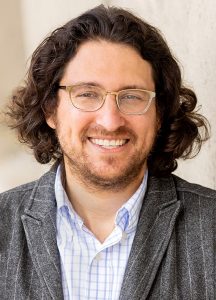
Devin E. Naar is the Isaac Alhadeff Professor in Sephardic Studies, Associate Professor of History, and faculty at the Stroum Center for Jewish Studies in the Jackson School of International Studies at the University of Washington. Born and raised in New Jersey, Dr. Naar graduated summa cum laude from Washington University in St. Louis and received his Ph.D. in History at Stanford University. He has also served as a Fulbright fellow to Greece. His first book, Jewish Salonica: Between the Ottoman Empire and Modern Greece, was published by Stanford University Press in 2016. The book won the 2016 National Jewish Book Award in the category of Research Based on Archival Material and was named a finalist in Sephardic Culture. It also won the 2017 Edmund Keeley Prize for best book in Modern Greek Studies awarded by the Modern Greek Studies Association.

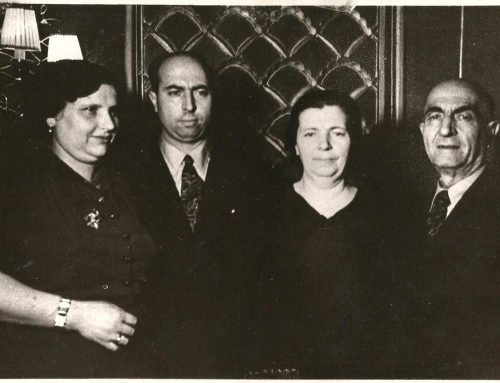
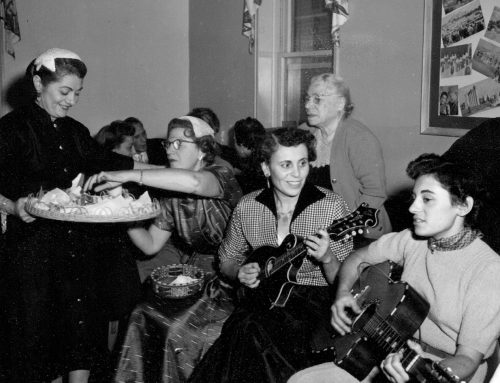
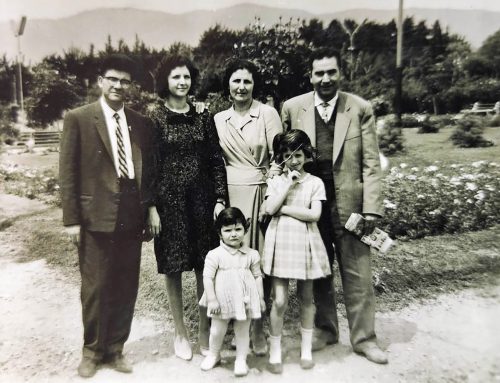

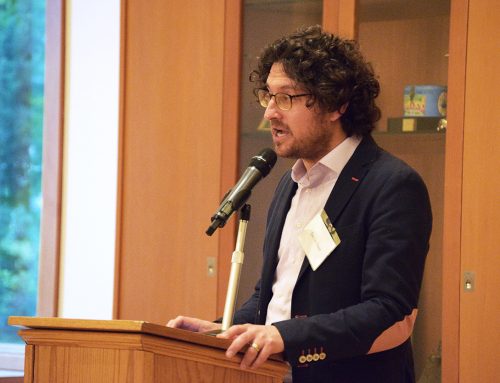

Leave A Comment